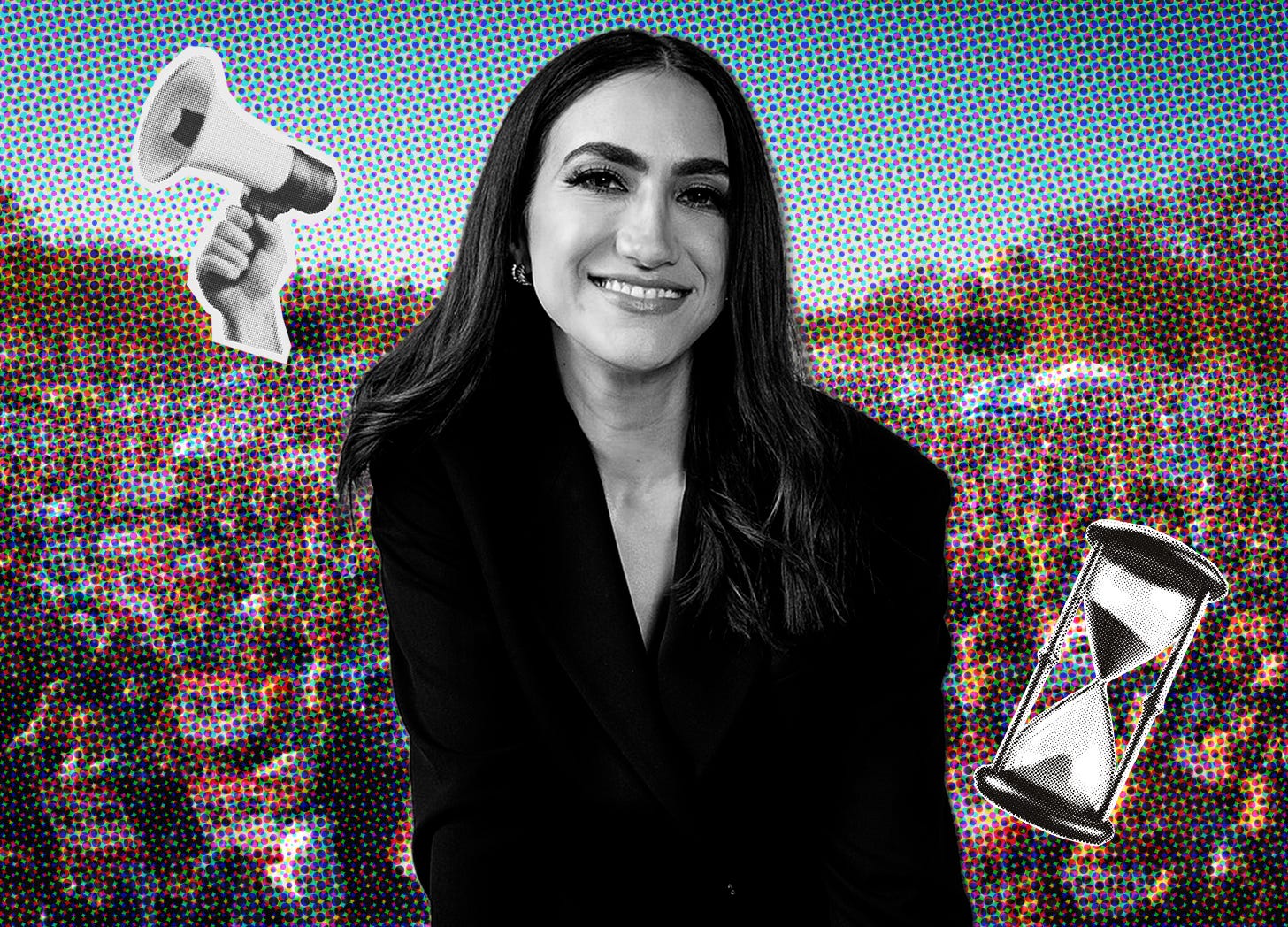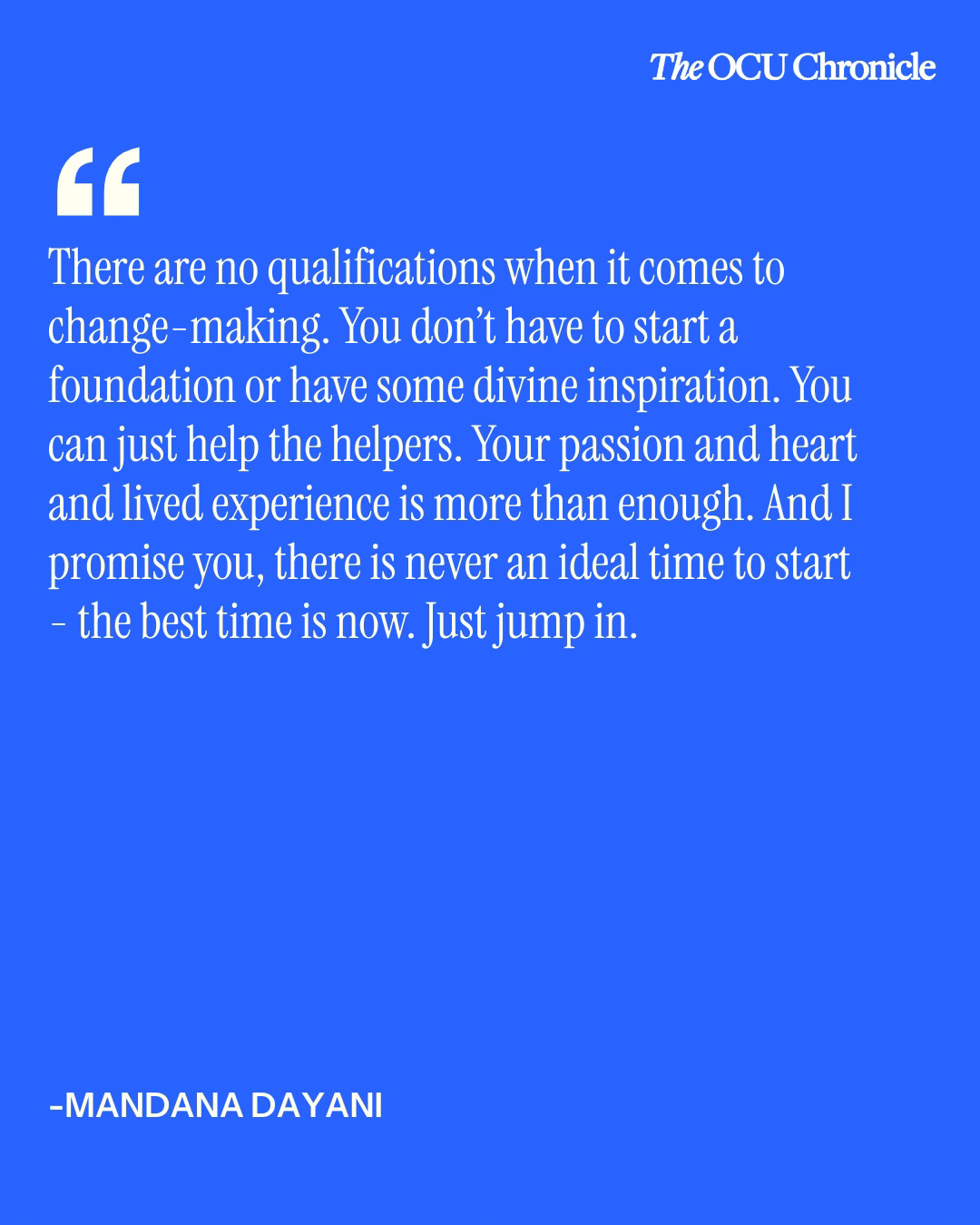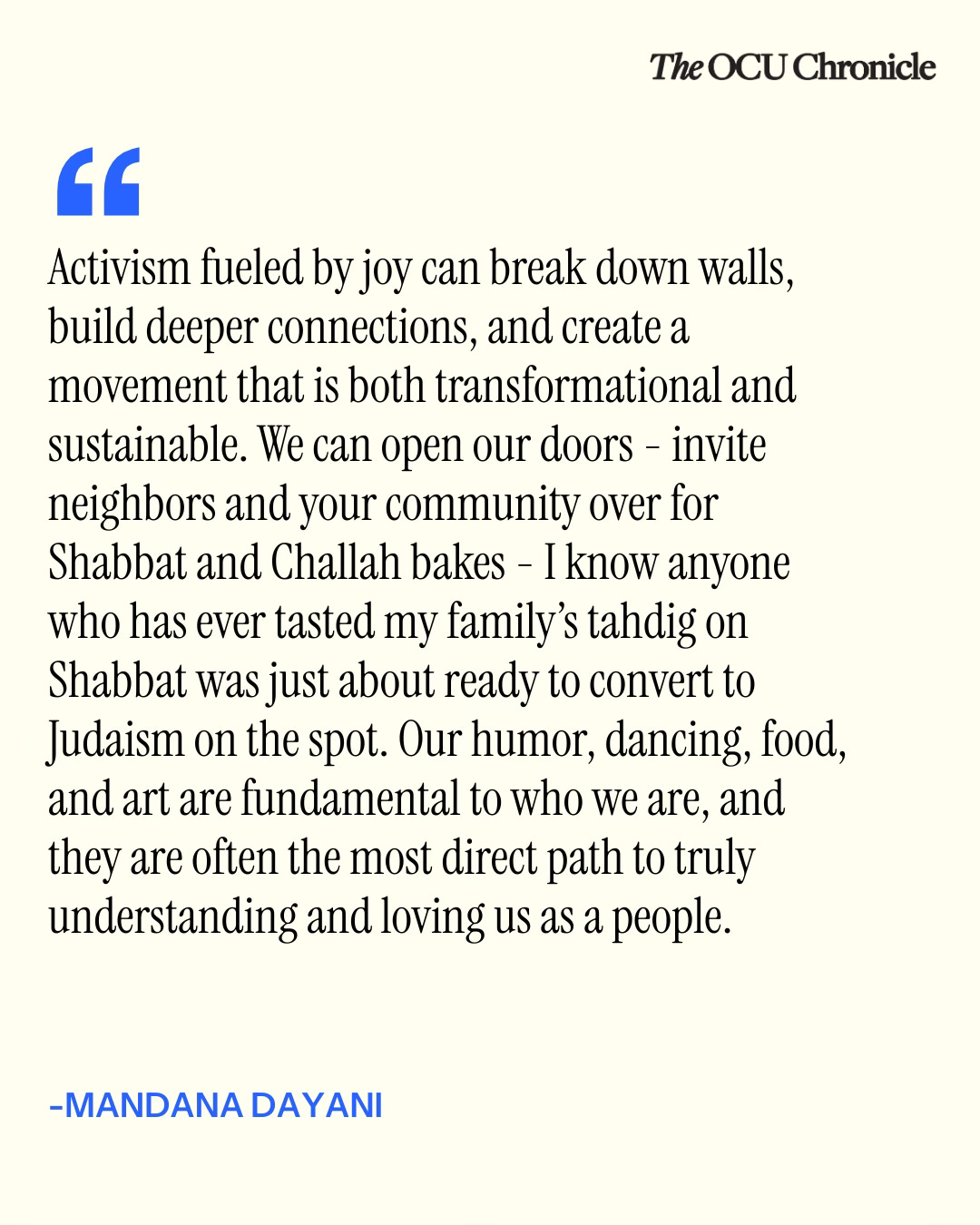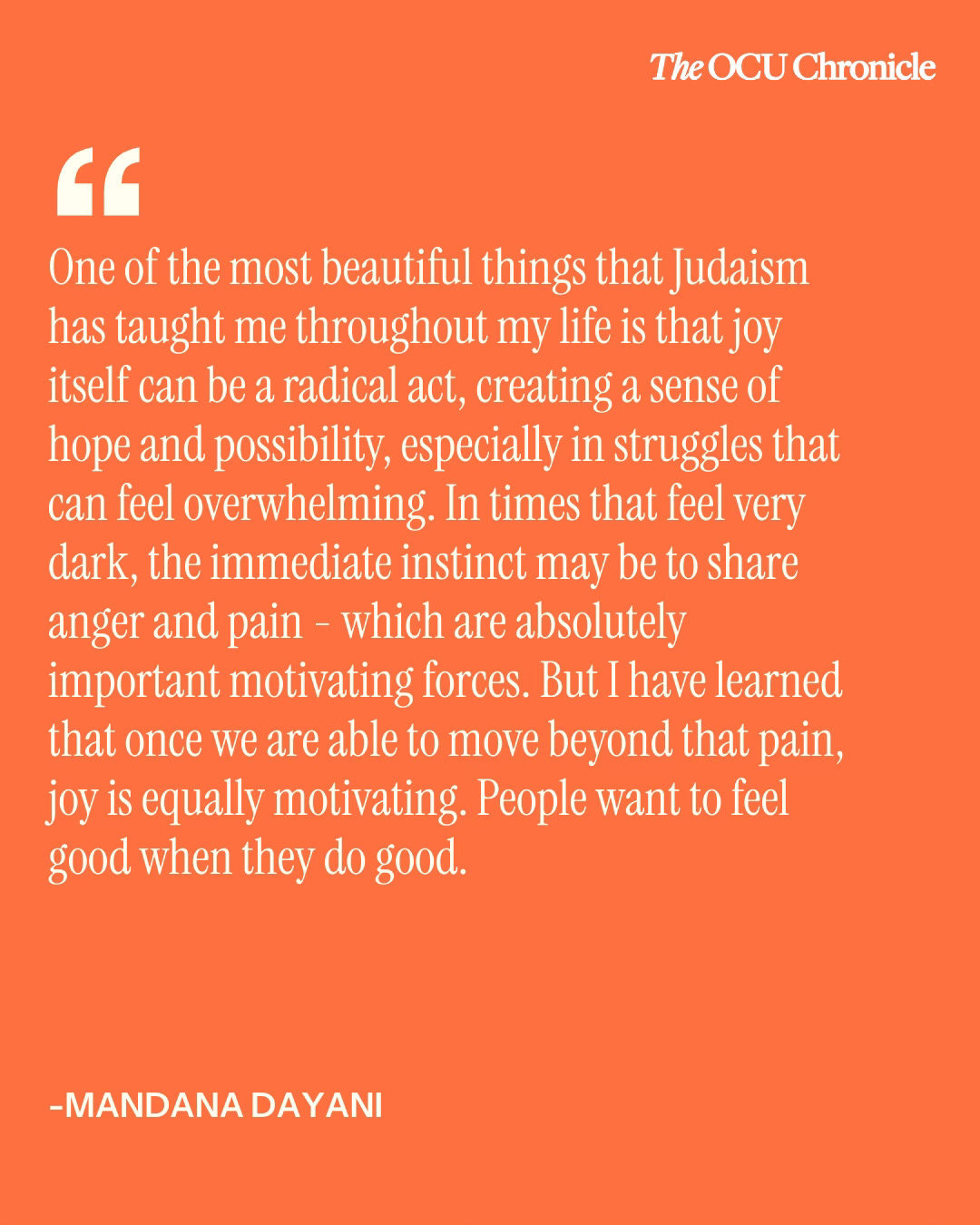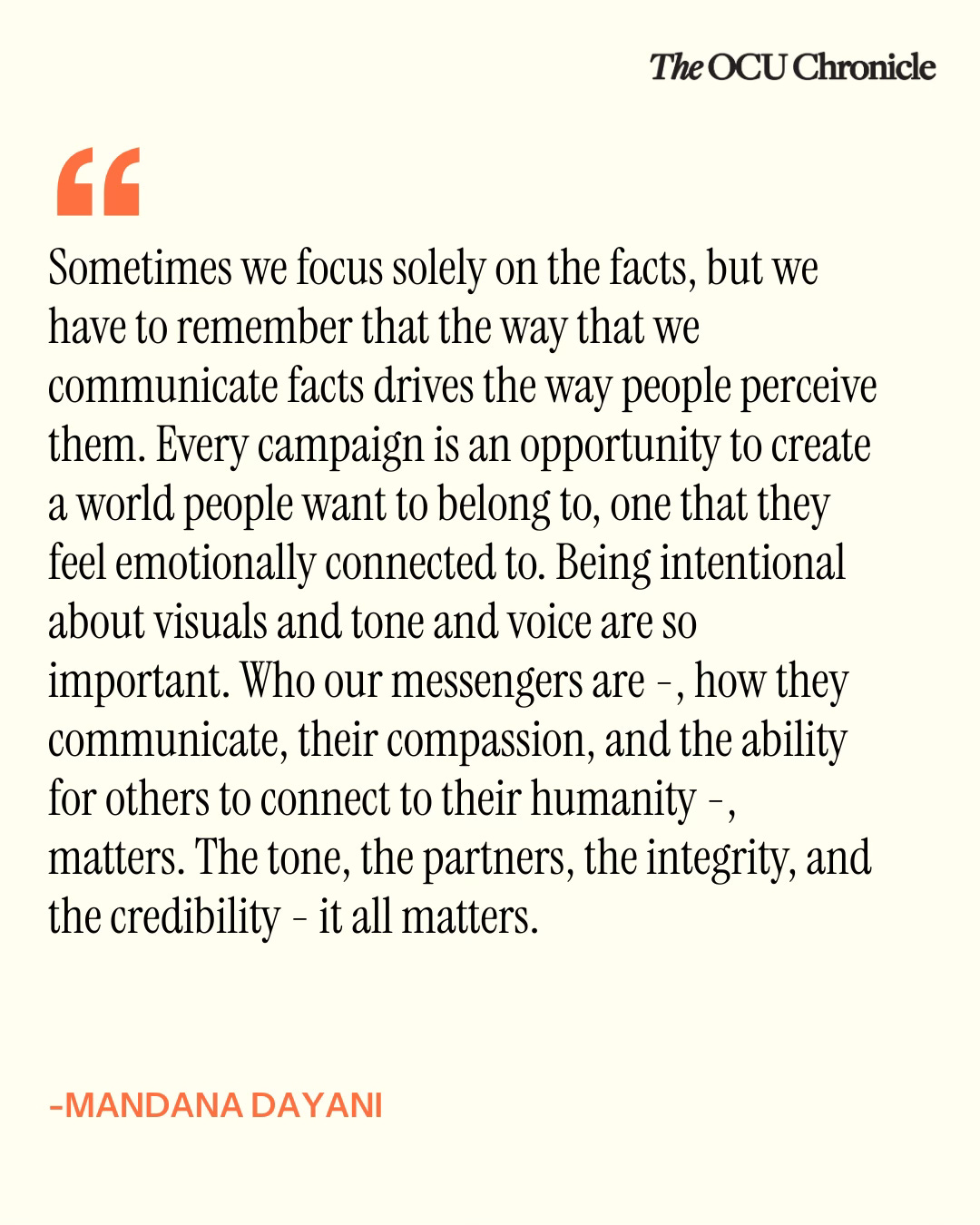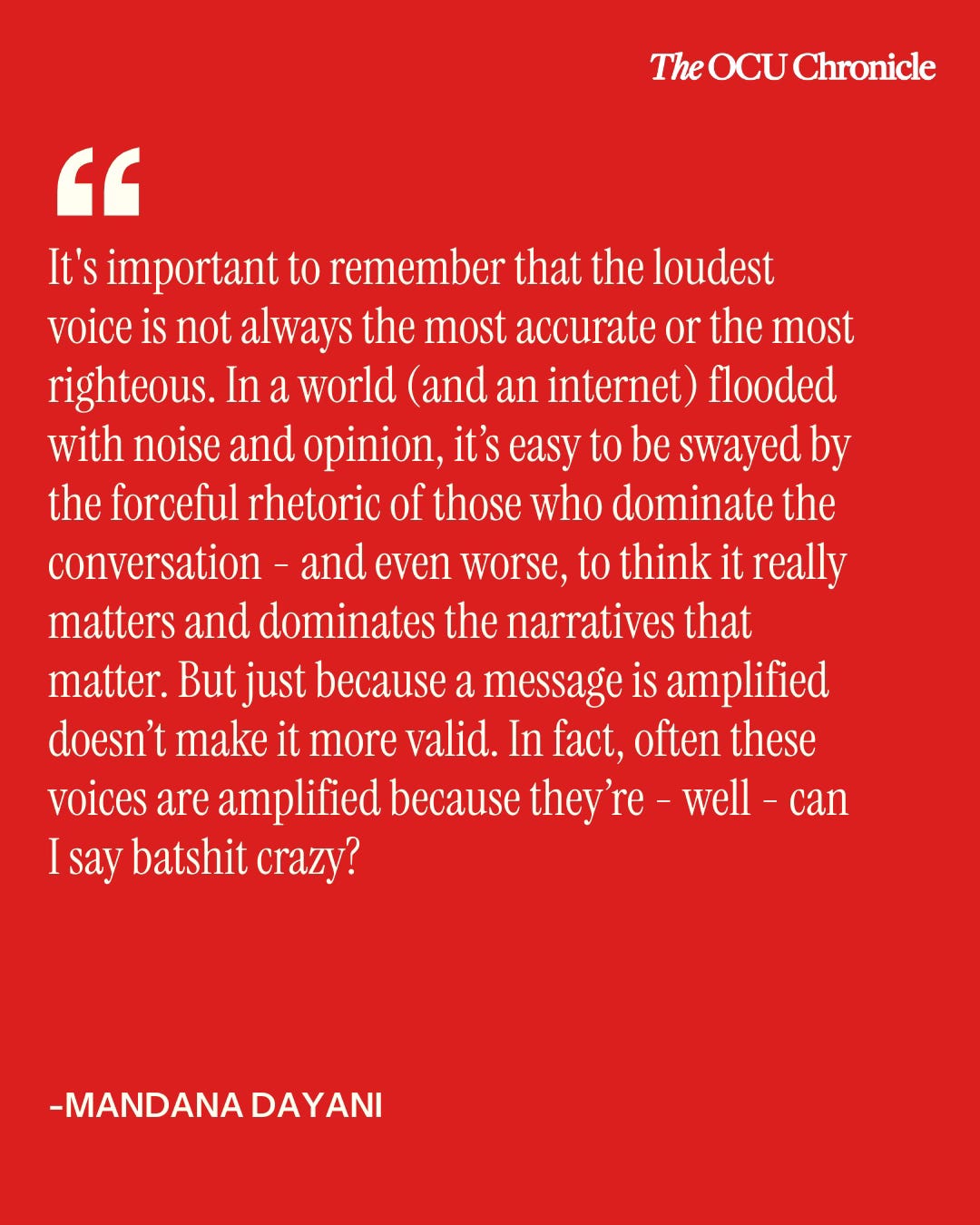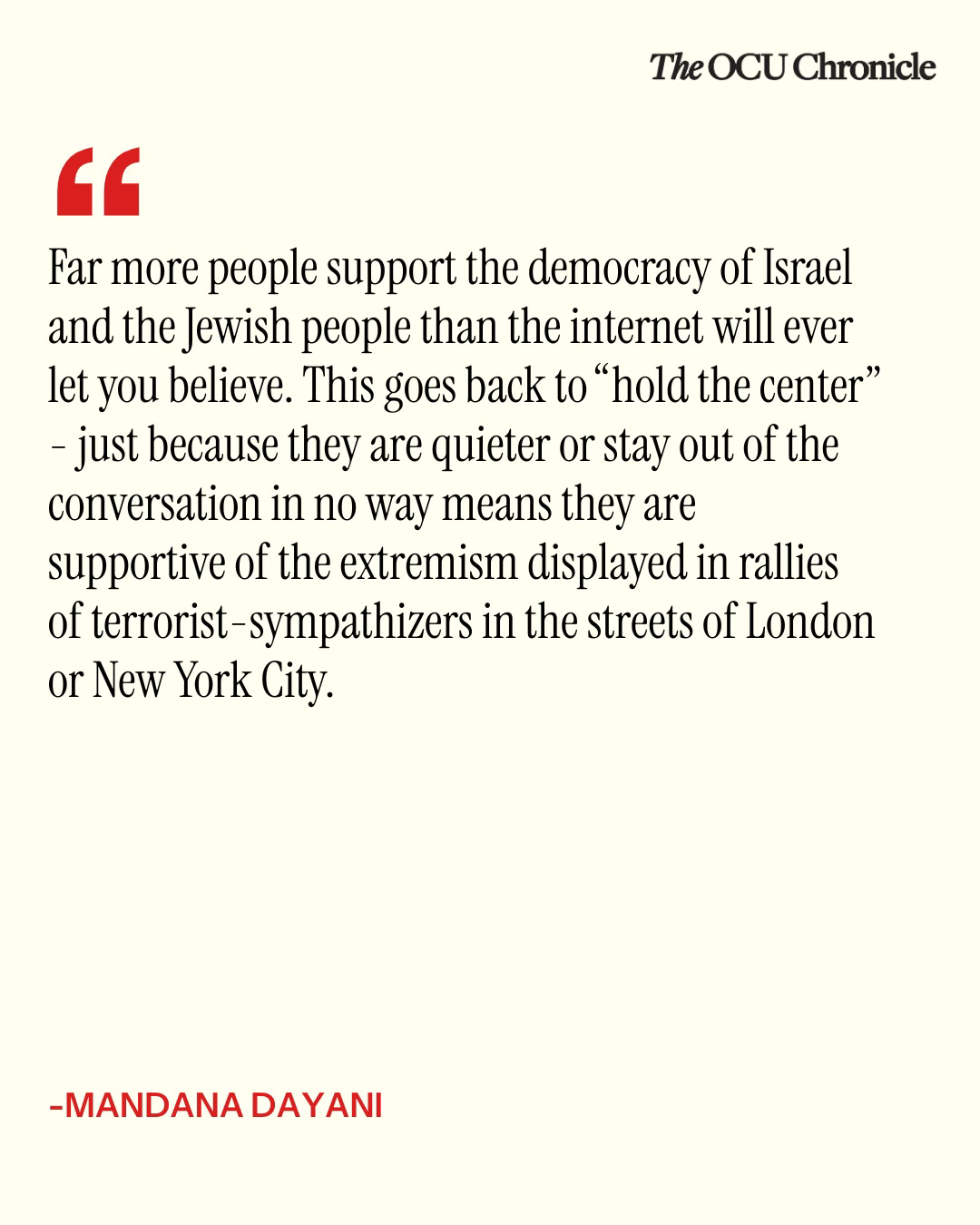10 Things I Learned In A Lifetime Of Activism
Mandana Dayani reflects on the lessons both big and small that have shaped her world view and shares her advice on the most effective calls to action.
by Mandana Dayani
Eight years ago, after the birth of my daughter, I was on maternity leave, when gut-wrenching images flashed across my TV screen: migrant children, separated from their parents at the border, under aluminum blankets in cages. As a mother and a human rights activist, I couldn't even process what I was seeing. I knew what terror these people were fleeing.
Not too long ago, I was the little girl arriving in New York City after fleeing the psychopathic, tyrannical Islamic Republic of Iran that denied me my freedoms and oppressed my people. How could this be happening here, in America - it was so punitive and cruel. The very land that offered my family salvation?
I jumped on a plane to Tornillo, Texas, the location of the first camp - I had to see it with my own eyes. I returned and quit my job in tech to focus on my activism full-time - I don’t even know how much I thought that decision through, I just knew there was nothing else I could do. Since that day, I have traveled the globe, met world leaders and congresspeople, convened at the White House, spoke at The UN, launched global campaigns, marched, wrote letters, and produced TV shows and podcasts. I have used my professional experiences (lawyer-turned talent agent-turned brand builder-turned business leader) and my life experiences (the countless adversities faced as an immigrant trying to make it in America and my passion for activism that began when I was just 8 years old) to guide my work.
In meeting after meeting with members of Congress, I was told that if we want to really create long-term systemic change, that we would need higher voter turnout. I didn’t see why that would be hard – as a brand builder, my job was to influence consumer decisions every day - get them to watch movies, buy products, and revere celebrities. And so I created I Am A Voter with CAA and a group of the most accomplished women I knew. I became a progressive leader - supporting my friends at the forefront of many issues facing marginalized communities. And then, on the dreadful day of October 7, I watched the world distort what they saw with their own eyes to side with the same psychopaths that have held my beloved homeland hostage for 45 years. It was the most profound rage, confusion, abandonment, and sadness I had ever felt. Somehow, the otherwise limitless capacity for solidarity and fury from my progressive colleagues did not extend to my community. I spoke up - every single place that would have me. To everyone that would listen. I went to Israel less than a month after the attack to meet with experts and see how we could push back against the narrative and balance the toxic levels of misinformation spreading across social platforms. I met the most brave, kind, devoted, and brilliant people I had ever worked with. This began the most important work of my life.
My entire compass since my earliest memory as a child is oriented toward justice and defending the underdog. It is only natural that activism has become my life’s work. And in that work, I have come upon the challenges, the triumphs, and the pitfalls. There is no rule book when it comes to activism, no Dummies Guide to Changing the World (I wish there was). All I have are the lessons I have gleaned from my own experience that I wish to impart to the Jewish people, or at the very least, to the readers of this journal the OCU Chronicle. May you take these small wisdoms and use them to change the realities that your inner compass is telling you must be fixed. I offer these rules as my humble roadmap toward a better and more just world. As the next generation, I can’t wait to see how you carry them forward.
10 Essential Lessons from a Life of Activism
Build bonds outside of your community: Often, when we are hurt—whether by injustice, discrimination, or personal struggles—our instinct is to retreat inward, seeking comfort in what is familiar. But real progress requires us to fight that instinct, to reach out rather than close off, and to engage with people who make us uncomfortable—those we disagree with and whose experiences, beliefs, or even biases challenge our own. I have found in my work that it is much easier to find the beliefs that link us rather than the beliefs that divide us. After October 7, the J Jewish community became my family - and we have grown together in ways I never would have imagined. But I also knew in the immediacy of the attacks that we needed to reach beyond the sacred walls of this peoplehood. We needed to de- escalate, to build bridges again, and - to realign on our many shared values that seemed forgotten.
Believe in the strength of grassroots organizing tools: Grassroots efforts are the foundation of any strong social movement, and they are rooted in the belief that change starts from the ground up, with ordinary people directly affected by an issue taking the lead in creating solutions. A personal mentor of mine, Shannon Watts, started Moms Demand Action, the gun violence prevention organization, as a Facebook group back in 2012. It is now the largest grassroots organization in American history - they have over ten million volunteers across the country, in statehouses every day defeating dangerous bills, training people to run for office, introducing legislation, and creating campaigns that are reshaping ourreshape culture. Inspired by this group’s ground-up philosophy, I recently founded One Mitzvah a Day, a project that texts its subscribers one actionable item they can do every day in order to combat anti-semitism and support Israel. I understood justknew how important it would be to get people on a text platform, motivated to take daily actionn, and using their voices. It would also give us the opportunity in the long term to create targeted, localized campaigns, and in-person activism - to support our community and efforts that strengthen Israel.
Joy in activism is key: One of the most beautiful things that Judaism has taught me throughout my life is that joy itself can be a radical act, creating a sense of hope and possibility, especially in struggles that can feel overwhelming. In times that feel very dark, the immediate instinct may be to share anger and pain - which are absolutely important motivating forces. But I have learned that once we are able to move beyond that pain, joy is equally motivating. People want to feel good when they do good. And if you want to have brands and influencers support your cause, both of which are constantly balancing the aesthetics of their social media feeds with their brand messaging, giving them an opportunity to support you in a way that aligns with their brand goals isare far more effective. In my work founding I am a Voter, we created a movement that was cool - we partnered with the biggest brands in fashion to create merch, we worked with NBA and NFL players to make videos, we created campaigns with iconic TV shows and celebrities to show how FUN and easy it was to vote. Our campaign #RegisterAFriendDay which was launched by three members of the Friends cast had over one billion impressions in one day and over 100,000 registration confirmations. Activism fueled by joy can break down walls, build deeper connections, and create a movement that is both transformational and sustainable. We can open our doors - invite neighbors and your community over for Shabbat and Challah bakes - I know anyone who has ever tasted my family’s tahdig on Shabbat was just about ready to convert to Judaism on the spot. Our humor, dancing, food, and art are fundamental to who we are, and they are often the most direct path to truly understanding and loving us as a people.
Change takes time: In a world with Amazon Prime and Doordash, it is easy to forget that most things in life don’t land on our doorstep overnight. We can’t just press buttons on our phone and expect a 2-day turnaround on social justice. The aforementioned Shannon Watts often says that change is incremental “The system isn't set up for overnight reform... Incremental progress can lead to revolutions,” she says, “You show up for years and years and years, like drips on a rock, and you do the heavy lifting, the unglamorous work of activism.” And those drips created a crack in the rock, and the water came cascading through. We need to keep showing up, over and over and over again.
Believe in the power of storytelling: Stories are how we connect. We don’t remember the facts - we remember the experiences of the people. Behavioral science and neuroscience have repeatedly proven that storytelling has theo power to shape how people think and act. After October 7th, I resisted theo urge to scream all the facts I knew at the overnight-Wikipedia-certified Middle East experts who were distorting every truth I held sacred in an effort to defend terrorists. But instead, I held up my iPhone camera, and shared - in my most raw emotions - about my experience as a child under the same regime that was funding these very terrorists. That video was viewed 50 million times. When I spoke at the United Nations Special Session on Sexual Assault Against Israelis, asking them to condemn the horrific acts of sexual violence perpetrated against Israeli women on October 7, I opened with the story of the time that regime pointed a gun at my head at the age of four - and then shared the stories of the experiences of the sexual assault of the women. I stood there to remind them that when we said “believe women” - we meant ALL women. When we think of the most important moments in history, we think of the stories that centered them: Rosa Parks, George Floyd, Anne Frank, Martin Luther King, Jr., Daniel Pearl. When we humanize our experiences, when we share the impact of antisemitism, when we tell the stories of our beloved hostages, when we are vulnerable and honest, - we can truly change hearts and minds.
Consolidation is not a winning strategy: After October 7, the Jewish people came together in shock and in mourning. We held each other through the single most horrific day in recent memory. And while tragic, it was also beautiful. And I think that is why I was the most heartbroken to see our community divided starting to attackand start attacking each other at the first signs of a partisan split. The right and the left became fully entrenched in their unwavering views - attacking the other that their political affiliation was the wrong one, shaming them for their views, or in some cases, shunning them out of the communities. The Jewish people must understand that it behooves us to diversify. I want representation across parties. The rooms where actual change occurs in this country are always going to be shifting hands – from the right to the left and back again – and so we must realize that it only hurts us to consolidate to one side. The moremost spaces we are in -, the more we represent our experiences and Israel - the better. Aid packages to Israel are bipartisan. AIPAC is bipartisan. It is a bad strategy and dangerous to entirely abandon any political party.
Just start: I mean this literally. And you may be thinking to yourself “But I don’t have the skillset.” Believe me, you have something that can contribute to a worthy cause - and something so many need. Are you an accountant? They need you. Are you in PR? They need you. Are you an artist? They need you. Are you a mom that juggles a hundred things a day - we all need you! Stay-at-home moms were essential in laying the groundwork for what became Moms Demand Action. They used their mom network (the most powerful mafia on the planet) to bring in more members, set up tables, make phone calls, and knock on doors. They didn’t need degrees in political science or law. Bring your expertise to the table, because I guarantee that your own brain is all you need to become an activist. There are no qualifications when it comes to change-making. You don’t have to start a foundation or have some divine inspiration. You can just help the helpers. Your passion and heart and lived experience is more than enough. And I promise you, there is never an ideal time to start - the best time is now. Just jump in.
Branding is important: In the last 15 years of building and scaling global brands across politics, entertainment, tech, fashion, impact, and digital media, I have learned that making people feel something is how you create change. How do you make them feel something with, say, a simple graphic? Every detail matters. Make the graphic gripping, cool, inviting, and aspirational. Sometimes we focus solely on the facts, but we have to remember that the way that we communicate facts drives the way people perceive them. Every campaign is an opportunity to create a world people want to belong to, one that they feel emotionally connected to. Being intentional about visuals and tone and voice are so important. Who our messengers are -, how they communicate, their compassion, and the ability for others to connect to their humanity -, matters. The tone, the partners, the integrity, and the credibility - it all matters.
Hold the center: In today’s climate, we are, for better or for worse, at the mercy of the algorithms. And the algorithms favor the extremes. We must not fall prey to these forces, beckoning us to the farthest reaches of the political spectrum. The center is aligned with Israel. We must remember that and work to stay within the world of the rational – the space between the poles that, though TikTok may find boring, is far safer for the Jewish people than either extreme. We must hold the truth that the path toward a safe and strong Jewish state is not through extremist solutions, it is through the center of the venn diagram. Social media, and clickbait headlines, will forever attempt to draw you away. Ignore them. Hold the center.
Don’t be dissuaded by the noise. Louder isn’t better: It's important to remember that the loudest voice is not always the most accurate or the most righteous. In a world (and an internet) flooded with noise and opinion, it’s easy to be swayed by the forceful rhetoric of those who dominate the conversation - and even worse, to think it really matters and dominates the narratives that matter. But just because a message is amplified doesn’t make it more valid. In fact, often these voices are amplified because they’re - well - can I say batshit crazy? We must resist the temptation to be swept up by the clamor and stay grounded in our principles, trusting that just because we are smaller in presence doesn’t mean our stance is any less powerful or correct, or that we are lacking in allies or support. Far more people support the democracy of Israel and the Jewish people than the internet will ever let you believe. This goes back to “hold the center” - just because they are quieter or stay out of the conversation in no way means they are supportive of the extremism displayed in rallies of terrorist-sympathizers in the streets of London or New York City.
Okay, so maybe there is A Dummies Guide to Activism. I kid. But in all honesty, the biggest kernel of wisdom I can convey, the truth that binds these rules together is this: You already have the tools you need. You have a voice within you, it grows every day, and it’s telling you there are injustices in your city, in this country, in this world that need to be remedied - find your way in and just start. We need you.
Please note: The views, thoughts, and opinions expressed herein are solely those of the author and do not necessarily reflect the official policy, position, thoughts, or opinions of Our CampUs United (“OCU”), its affiliates, or any other individuals or entities associated with OCU.



